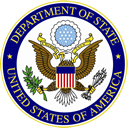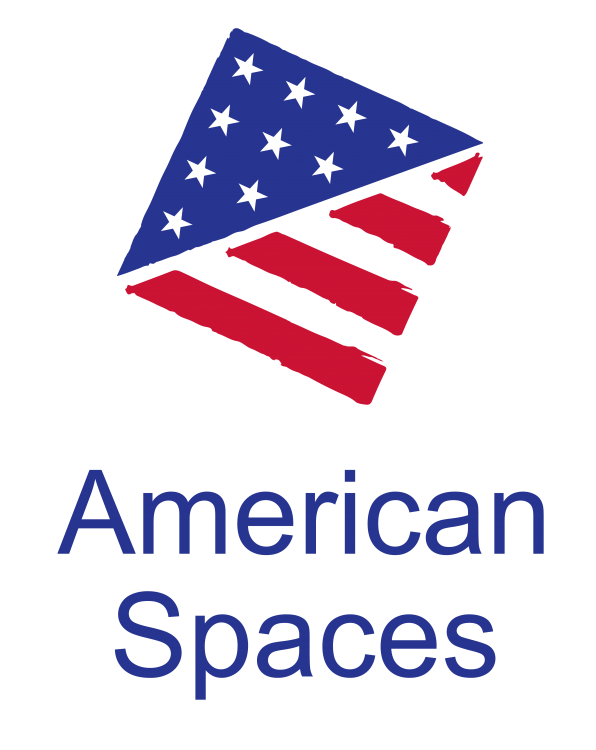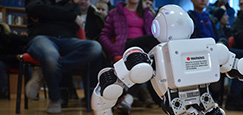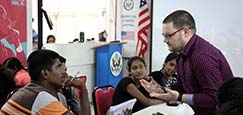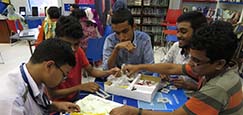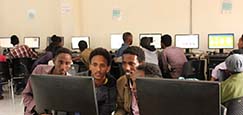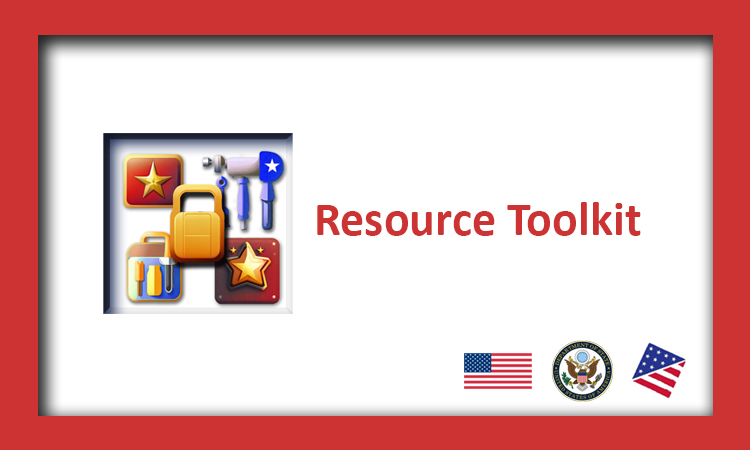MEDIA LITERACY AND COUNTERING FOREIGN DISINFORMATION
PROGRAM TOOLKIT FOR AMERICAN SPACES
This program toolkit is designed for programming at American Spaces to increase participants’ awareness of foreign disinformation and enhance their media literacy skills.
BEST PRACTICES
- Work closely with your Embassy or Consulate to create serial programs that address foreign disinformation and misinformation in your local context.
- Invite local journalists from independent and reputable outlets to discuss journalism ethics, fake news, and current events.
- Start clubs that give aspiring or young journalists tools to create their own content, e.g., film making, podcasting, photography, or journalism clubs.
- On your computers, bookmark accurate sources of local and international news and games that teach media literacy.
- Use videos/online courses on media literacy in your English classes.
WHERE DO I EVEN BEGIN?
The rise of foreign state-sponsored disinformation and fake news is worrisome. The U.S. government is committed to countering this problem worldwide. This toolkit is designed to give you the resources to increase American Spaces visitors’ media literacy skills. Some of the best programming is created with your Embassy or Consulate and working with local partners, U.S. government exchange alumni, and journalists.
Always keep in mind the ABCs. Who is your Audience, what is the Behavior change you want to see, and what is the Content of the program? Below are examples of types of programs that your American Space can run:
- Journalism, photography, or podcasting clubs,
- Internet and media literacy courses for specific audience like parents, journalists, or teachers, and
- Online course on media literacy and cyber security.
RESOURCES
Voice of America (USAGM)
The U.S. Agency for Global Media (USAGM) provides reporting in countries and languages across the world. On their website, find information on how American Spaces can use USAGM resources, including how to get a USAGM expert to present virtually.
Videos
- Facts about Fact Checking – Crash Course on Navigating Digital Information
- VoA’s News Literacy videos with vocabulary and transcripts
- This series from YALI teaches viewers how to spot fake news
- How to Spot Disinformation from ShareAmerica
- Importance of Skepticism from ShareAmerica

Lesson Plans
Newseum
The Newseum’s online materials includes videos, articles, and self- paced courses on media literacy. You’ll need to create a free account to access their materials.
News and Media Literacy Collection from PBS
These lessons can be conducted individually or as a course for Emerging Voices audiences.
Center for News Literacy
From Stony Brook University, this site provides free lesson plans, videos, and presentations on evaluating news and social media.
Project Look Sharp
Here are 5 free downloadable lesson plans and videos that teach participants how to analyze foreign disinformation. Free account required.
Assessing the News Activity
Here are 5 free downloadable lesson plans and videos that teach participants how to analyze foreign disinformation. Free account required.
RESOURCES
- American Spaces Cybersecurity Toolkit
- Cat Park – is a game for teaching about countering foreign disinformation.
Shareable Content from American English
Podcasting
- Consider starting a podcasting club. Here’s an easy to follow guide from ECA on how to create your own podcast.
Games
- Harmony Square – Based on research, this game was co-developed by the State Department. It’s easy to play and available in several languages.
- Factitious – Test your ability to identify fake news.
- Google’s Interland – This arcade style game teaches users information safety and signs to spot misinformation
- MediaSmarts has a number of fun educational games
- NewsFeed Defenders from iCivis allows you to choose an avatar to detect and disregard foreign disinformation
Resources for Civil Society
- The Oxford Internet Institute has created a resource toolkit for civil society organizations to address foreign disinformation.

Discussion Guides
Webinar – Credible News Making
In this webinar, a U.S. professor of journalism and former broadcaster discusses the current multi-media digital platforms and why journalists must maintain ethical standards. The guide contains resources, discussion questions, and suggestions on running a virtual program around the webinar.
Media Literacy in Schools
This discussion guide of a 7-minute news segment on teaching media literacy in U.S. schools allows participants to understand the importance of sourcing and discerning between fact and opinion.
Shattered Glass Discussion Guide
The movie Shattered Glass* follows the story of a young journalist climbing the ranks and what happens when he is discovered to be a fraud. The discussion guide brings out the importance of journalism ethics and the role of the media.
Online Courses for Clubs
Making Sense of the News
This free 6-week Coursera course develops critical thinking skills to better identify reliable information.
English Language Resources
Media Circles: Lively, Learner-Led Lessons – Provides tips on using media literacy concepts in the EFL classroom
- Empowering Your Students with Media Literacy – Explores activities on media literacy
*Post may need to procure these films. The Office of American Spaces does not endorse all movies as they may not be appropriate for all audiences. Coordinators should screen the films ahead of showing them. Here’s a link with more information on showing movies at American Spaces.
The views expressed in these links and resources do not necessarily reflect those of the U.S. government.
Updated May 2024

